Supporting People 20th anniversary
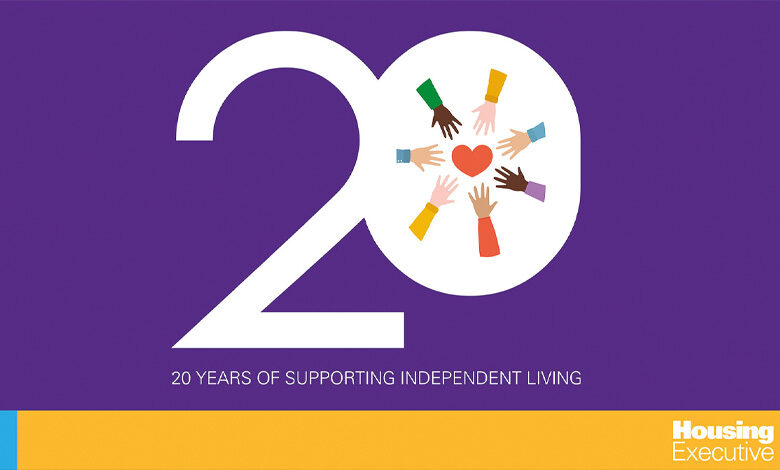
Over the last 20 years, the Housing Executive, as the strategic housing authority for Northern Ireland, has held the responsibility for securing the provision of housing-related support services and the administrative responsibility for delivering the Supporting People Programme.
The purpose of the programme is to offer vulnerable people the opportunity to improve their quality of life, by supporting and enabling them to live more independently.
Supporting People plays a crucial role, not only in the housing and the health and social care sectors, but across communities in Northern Ireland.
It provides vital ongoing support to vulnerable households across Northern Ireland.
As we celebrate the successes of Supporting People, the measure of success comes from the real improvements to the lives of many people and how they have benefitted from invaluable support at some of the most challenging times in their lives.
To date, the Supporting People Programme has invested over £1.2 billion. Last year over £76 million was distributed to 82 service providers who deliver over 800 vital services to over 19,000 individuals across Northern Ireland.
Established in April 2003, the programme is delivered in partnership with Health and Social Care and the Department of Justice, on behalf of the Department for Communities. Grant funding is paid to partner organisations to enable them to deliver services that provide housing-related support and assistance to service users, enabling them to live as independently as possible in the community.
The Supporting People Programme in Northern Ireland has three broad objectives:
- achieve a better quality of life for vulnerable people to live more independently and maintain their tenancies;
- provide housing support services to prevent problems that can often lead to hospitalisation, institutional care, or homelessness; and
- help to smooth the transition to independent living for those leaving an institutionalised environment.
The programme is focused on four thematic areas; supporting people who are experiencing homelessness; young people; older people; and people with a disability, including mental health and learning disabilities. Over 19,000 people are supported to live independently each year.
The programme has a broad provider base with organisations spanning across the public, private, community and voluntary sectors, delivering;
- short-term accommodation and support for people in housing need (hostels, refuges and foyers);
- long-term accommodation and support to sustain a home (supported accommodation);
- floating support delivered into people’s homes for a short period of time (up to two years) to maintain or regain independent living; and
- longer term peripatetic/dispersed support delivered into people’s homes to maintain independent living for people with more enduring needs.
The core functions of housing related support include:
- promoting housing stability and ensuring security of tenure;
- ensure income is maximised, to meet housing and other costs;
- ensure access to health and social care and specialist services;
- training and support with daily living skills;
- encouragement and support of positive friendships and family relationships; and
- encouragement and support of positive community links and participation.
Housing support services funded through the programme are often provided alongside a range of measures from other agencies as part of a continuum of services.
The Supporting People Programme not only provides assistance for vulnerable people to live independently in their own home, it also reduces other costs to the public purse. A report commissioned by NICVA in 2015* estimated that every £1 spent on the Supporting People services saves the public purse £1.90. The Housing Executive also commissioned research in 2020 on the ‘Social Return on Investment’ and the findings indicated that every £1 spent on Supporting People between 2018 and 2021 generated a social value of £1: £5.71.
The preventative value of the Supporting People Programme, relieving financial pressure on the wider public sector, cannot be overemphasised.
In 2022, the Housing Executive introduced the Supporting People Strategic Plan and Covid-19 Recovery Plan 2022-2025 which focuses on driving recovery and re-build beyond Covid-19, working towards closing the 14 per cent gap between need for services and supply, collaborating with providers to invest in service innovation to achieve greater outcomes and strengthening relationships across health, criminal justice and housing with the aim of generating greater value from public funds.
The new plan can be found online at nihe.gov.uk and searching Supporting People.
Developed following extensive engagement with stakeholders including service users from the voluntary, community, and statutory sectors, we look forward to continue working with all our partners.
To mark the 20th Anniversary of the Supporting People Programme in Northern Ireland, the Housing Executive is organising a series of activities and events to highlight and promote the impact, benefits and positive outcomes for service users throughout the 20 years of the programme. This includes the production of a film documenting the work of Supporting People, provider organisations and the impact the programme has had on the lives of those supported.
The film will premiere at an event in the Parliament Buildings, Stormont, in June 2023 and will be made available through the Housing Executive’s social media channels. During the event partners, providers and staff will gather to celebrate the success and impact of the programme over the last two decades. Speakers will highlight the significance and impact of the programme as well as its future priorities.
The collaboration between the Housing Executive, the Department for Communities, the Department of Health and the Department of Justice has been a productive joined-up approach in the successful delivery of the Supporting People Programme over the past two decades.
We also thank Supporting People staff who administer the programme and the invaluable contribution of service provider staff who have made, and continue to make, a remarkable and positive difference to the lives of so many people.
Some examples of the valuable assistance provided through Supporting People
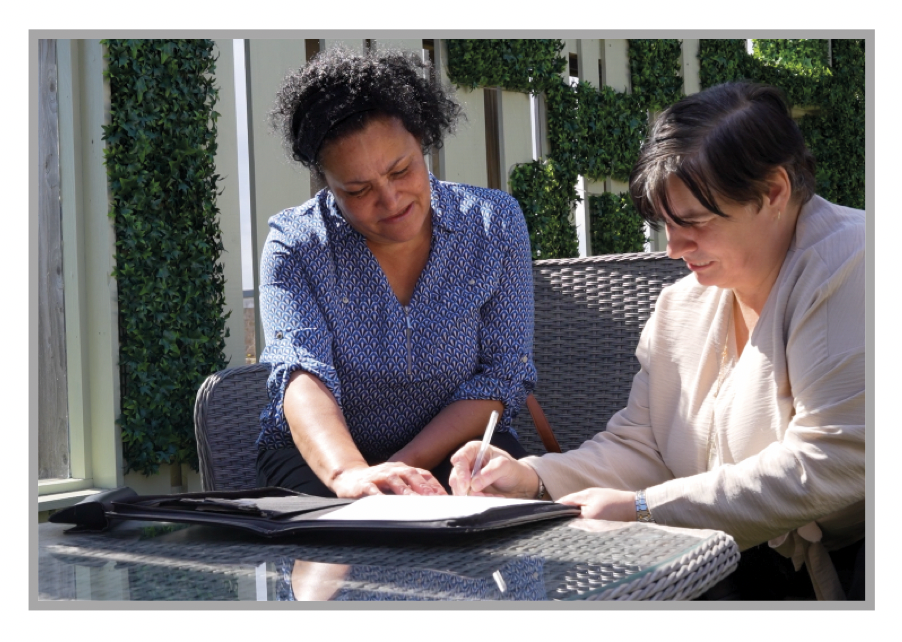 Homelessness
Homelessness
Hosford House is a homeless project of East Belfast Mission providing support and shelter for the last 20 years. It is a 26-bed hostel for single men and women. Accommodation involves several different options (including move on apartments) depending on the needs of the clients. Clients are helped towards a goal of moving to independent accommodation with access to extensive support to help tackle and deal with the problems they encounter.
Supporting People also fund East Belfast Mission to provide the Hosford Tenancy Support Service which provides floating support to help people maintain their tenancies and avoid homelessness through regular one-to-one support to people who are at risk of homelessness.
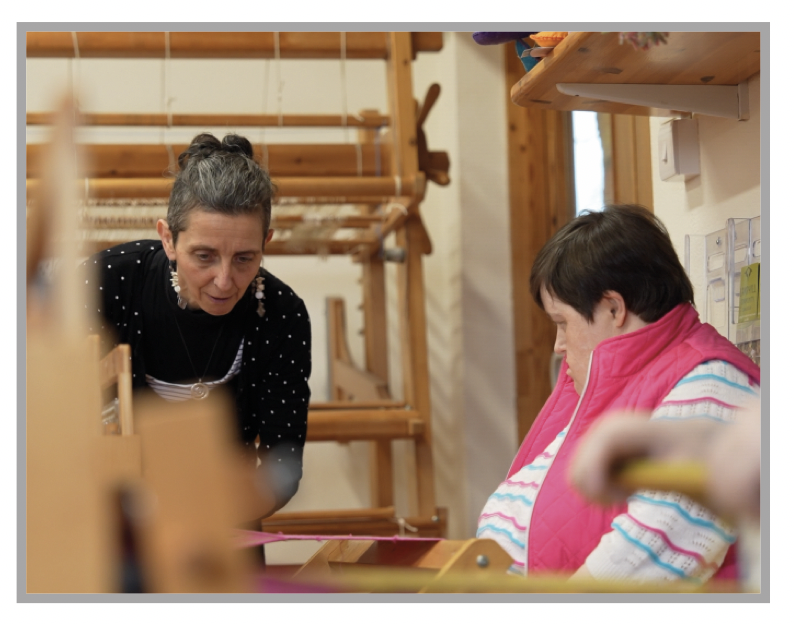 Disability/mental health
Disability/mental health
Camphill Clanabogan works to create communities in which adults, many with learning difficulties, can live, learn and work with others in healthy social relationships. There are over 80 people in Clanabogan, of which 30 units of support funded through Supporting People.
Baking, weaving, ceramics, woodwork and other handicrafts are developed in workshops where groups of people learn to work sociably and creatively. People are also supported to express themselves creatively through crafts, music and drama.
Members of multi-disciplinary teams including podiatry, GPs, community nurses, speech and language, and occupational therapy carry out visits to the service. This provides a holistic approach to community life within Clanabogan.
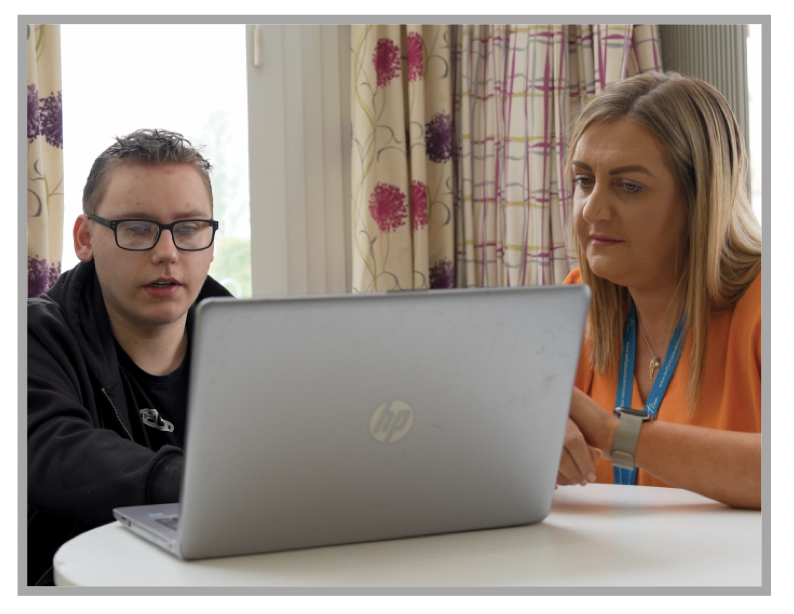 Young people
Young people
Belfast Central Mission Supported Housing for Young People, Tafelta Rise, Magherafelt provides 13 self-contained apartments for young people from 16 to 21 years. Accommodation is available for up to two years and referrals are accepted from the Housing Executive and NH&SCT. Four of the units are available for young people under 18 years of age.
The project aims to support vulnerable young people to develop the skills to live independently in the community.
Belfast Central Mission Supported Housing aims to work in partnership with each young person and to offer them the opportunity to experience a gradual transition from residential, family or foster care to independent living in the community.
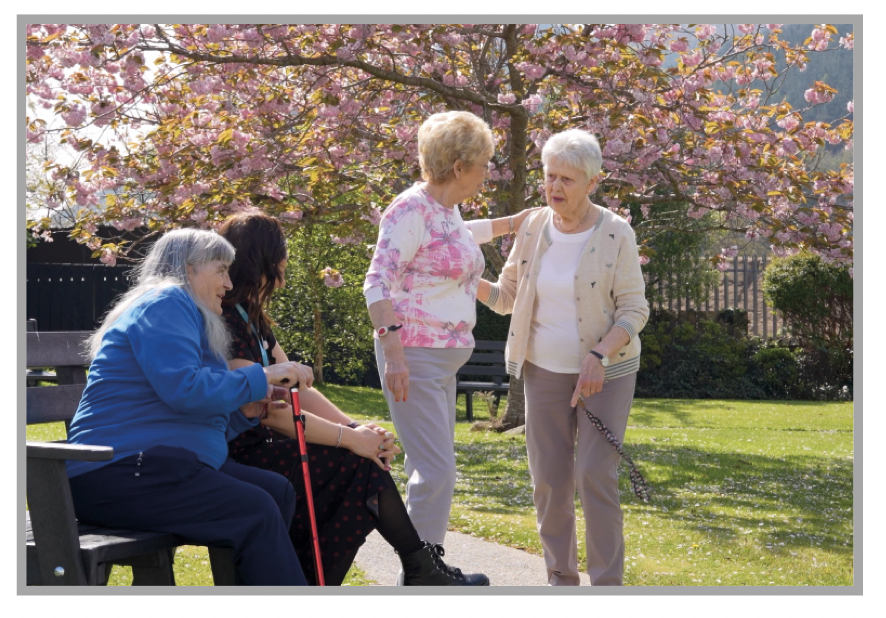 Older people
Older people
Donard Fold offers 25 units of apartment style accommodation specially designed for over 55s who want to live independently with the reassurance of 24 hour support.
Independent living apartments offer the opportunity to take full advantage of the communal areas and designated tenant gardens with the added comfort of a safe and secure living environment.
Independent living tenants have the choice to take part in a wide range of social activities, events, and outings.
For further information about Supporting People, please contact:

The Housing Centre
2 Adelaide Street
Belfast, BT2 8PB
T: 0344 892 0900
W: www.nihe.gov.uk
*Centre for Economic Empowerment (2015) The Financial Benefits of the Supporting People Programme in Northern Ireland, Northern Ireland: NICVA





